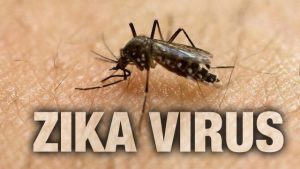Zika Virus; Symptoms, diagnosis, & Treatment
According to the WHO, Zika virus is spreading explosively in the US leading to birth defects in babies born to pregnant women. It is therefore necessary to known what is this Zika virus and how it affects people.
What is Zika virus?
Zika virus is a member of the Flaviviridae virus family which belongs to the genus Flavivirus. It got its name from the Zika forest in Uganda where the virus was first identified in 1947. The virus is related to Yellow fever virus and occurred along the narrow equatorial belt from Africa to Asia. From 2007 hither to now, the virus has spread outside Africa across the pacific.
Zika virus is a mosquito borne illness and is mainly spread by the Aedesalbopictus also known as the Asian Tiger mosquito and also the Aedesaegypti species. These are also the species of mosquito responsible for the spread of dengue virus. Unlike the species that carries malaria, these mosquitoes are mostly active during the day.

Transmission
Zika may be spread through blood transfusions and sexual intercourse. When a mosquito bites an infected person, it passes the virus to other people that it will bite. Scientists have found the virus to be present in an infected persons saliva and urine and is said to be capable of staying in a man’s semen for up to 10 weeks. There is a potential risk of the virus also spreading through infected blood. This means the virus can also be spread from an infected mother to her fetus during the pregnancy period or even during delivery due to the mixing of blood.
What are the symptoms of Zika virus?
Zika virus infection which is known as Zika fever or Zika virus disease is known to often cause no symptoms at all or mild symptoms which often last up to a week. It is said that only about one out of five people infected with the virus exhibit the symptoms. Many people might not even realize they are infected since they won’t get sick enough to go to the hospital. Some of the most common symptoms of Zika virus infection include:
-Muscle pain
-Headache
-Joint pain
-Fever
-Rash
-Vomiting
-Pain behind the eyes
-Conjunctivitis or red eyes
Once a person has been infected by the Zika virus, they are likely to be protected from any future infections. Zika infections in adults may also rarely result in the development of Guillain-Barre syndrome. In pregnant women, it can result in microcephaly, severe brain damages and various birth defects.
How are you tested for Zika virus?
Zika virus can be tested in two ways which include; looking for the pieces of the virus genetic code in those infected or looking for the proteins called antibodies made by the immune system to fight this virus. The first test is usually less effective after the body clears the infection which takes about two weeks. The second one is more effective since it can find antibodies in an infected person’s blood even three months after infection. In pregnant women, the amniotic fluid can be tested. If you have recently travelled to any place, you should see your doctor immediately when you notice the symptoms of Zika virus infection for them to order for blood or urine tests.
How is Zika virus treated?
Currently, there is no vaccine that can prevent Zika virus or medicine that is known to treat it. However, you can treat the Zika virus symptoms by:
-Drinking a lot of fluids to prevent dehydration
-Getting plenty of rest
-Taking medications such as paracetamol or acetaminophen to reduce pain and fever
It is advisable not to take aspirin or any other Non-steroidal Anti-inflammatory Drugs (NSAIDs) until dengue can be ruled out. This is to reduce the risk of bleeding in infected people. In case you are taking any other medication for treating any other medical condition, you can talk to your doctor first.
What are the protective measures to be taken?
It is advisable for you to protect yourself all day long to avoid mosquito bites if you are travelling to an infected area. You can do this by using mosquito repellents and wearing long-sleeved shirts and pants whether you are indoors or out. You should also be extremely vigilant against mosquito bites when you return home especially during the first ten days.
